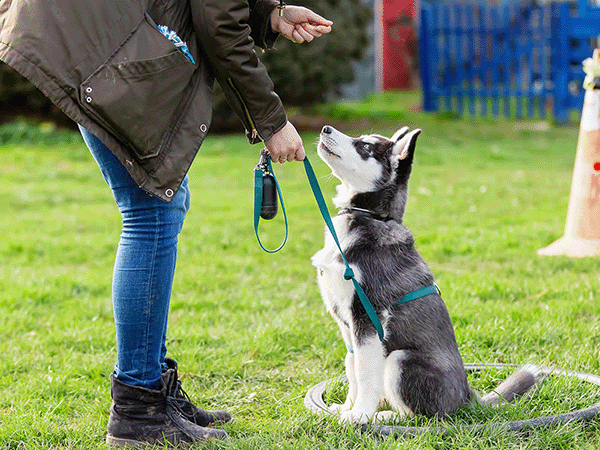The Most Dog-Friendly Airlines For Flying With Your Pup

Traveling with your dog can be a rewarding experience, but what do you do when adventure calls you to a place that’s a bit too far for a drive? If you're a pet-owner who want to jetset with your pup, then you’ll want to find the best dog-friendly airlines.
At Sniffspot, we know how important it is to find an airline that prioritizes the comfort and safety of dogs on board. So we turned to our community to compile thousands of ratings from real customers to determine the best dog-friendly airlines in the USA.
We ranked the airlines based on their overall service, and then broke them down based on the best options for big dogs and reactive dogs. We also added some info on flying with service dogs, and a few tips on how to make your travel process as smooth as possible.
Dog-Friendly Airlines: Quick Overview
 @plane.vue on Instagram
@plane.vue on Instagram
Dog-Friendly Airlines: Our Rankings
Everyone has their own preferences when it comes to their favorite airline, and even more so when they add their pup to the passenger list. Here's a look at which pet-friendly airlines Sniffspot members prefer to fly with when traveling with their dog.
Community Stats: What is your preferred airline for traveling with your dog?
 Source: Sniffspot User Travel Survey 2024
Source: Sniffspot User Travel Survey 2024
Sniffspot users also evaluated Frontier Airlines, Spirit Airlines, Allegiant Air, Sun Country Airlines, and Hawaiian Airlines. However, the ranked lower on the list, so we omitted them from this report.
How to Pick The Best Dog-Friendly Airlines
There’s no one answer when it comes to the most dog-friendly airline. Instead, there are a number of factors to consider, like where you’re traveling, the size of your dog, how many dogs you’re traveling with, whether you want your dog in the cabin with you or checked as cargo, airline loyalty perks, and more.
Before we break down the individual airlines, here are a few key points to help you make the best desiscon for you and your pup.
Pet Policies
A dog-friendly airline will have clear and accommodating pet policies. They should have easy-to-understand guidelines on the requirements for bringing a dog on board, including information on size and weight restrictions, carrier specifications, policies for domestic travel and international travel, and necessary required documentation such as health certificates and vaccination records.
Cabin vs. Cargo
Traveling with a carry-on pet in the cabin allows your dog to stay with you during the entire journey. Airlines that prioritize cabin travel for pets typically have limited spaces available and require early booking.
For larger dogs unable to fit in the cabin, cargo travel can be a suitable option. However, it's crucial to choose a pet-friendly airline that ensures the safety and well-being of dogs traveling in cargo, with temperature-controlled, pressurized compartments, and experienced employees.
 @mrpeanutspetcarriers on Instagram
@mrpeanutspetcarriers on Instagram
Airport and In-Flight Amenities
A dog-friendly airline will go the extra mile in providing amenities to ensure your dog's comfort. Look to see if an airline provides pet relief areas in the airport or on the plane, or amenities such as blankets, water bowls, or toys to keep your furry friend entertained during the flight.
Pet Fees
Airlines will often charge different rates for bringing a pet on board versus checking them in the cargo section. Some airlines will allow you to bring two small pets in one carrier, and only charge you one rate for that. Others will allow you to bring two pets on board in separate carriers, as long as you buy a second seat as well. Make sure you know what you’ll need to pay for, in addition to your own ticket.
Trained Staff
An essential aspect of a dog-friendly airline is the presence of trained staff who understand the unique needs of traveling with dogs. These staff members should be knowledgeable about handling and caring for dogs during the flight, and should be available to provide assistance and answer any questions or concerns you may have.
 @norby_bear on Instagram
@norby_bear on Instagram
The Most Dog-Friendly Airlines
1. Delta Air Lines
In-cabin policy: $95 to and from the U.S, Canada, Puerto Rico, U.S. Virgin Islands; $75 to and from Brazil; $200 for other international flights.
Cargo policy: Only available for active U.S. Military or U.S. State Department Foreign Service Offices (FSO) traveling with active permanent change of station orders.
Delta Air Lines ranked number one as the most preferred airline for Sniffspot members to fly with their dogs. They have slightly lower pet fees than other airlines, and customers appreciate their friendliness and attention to detail.
 @heybaileydrew on Instagram
@heybaileydrew on Instagram
If you have two pets of the same breed and size between the ages of eight weeks and six months old, Delta allows them to travel as carry-on pets in one kennel together, and you’ll only be charged for one pet.
Once you book your flight on Delta, you need to call or chat with a representative to reserve your pet’s spot. They have a “first-come, first-serve” policy and can only have a limited number of pets on a flight, so give yourself enough time to make this booking in advance. Pro tip: be ready with your pet’s kennel dimensions when you call.
Community reviews:
“Delta is by far the most reasonable [for] checking in and flying with dogs.”
“They have been friendlier and more accommodating with my dog and several other airlines I’ve tried.”
“Their loyalty value and attention to detail is preferred over other airlines.”
View the full Delta Airlines pet policy.
2. Southwest Airlines
In-cabin policy: $125 between U.S. Mainland; $35 between Hawaiian Islands
Cargo policy: Unavailable
Sniffspot members love that Southwest allows you to pick your own seat with your pup, and find that employees are very consistent with enforcing rules. You can bring your dog with you in the cabin as long as they can rest comfortably in a natural position in carrier that’s no larger than 18.5" x 8.5" x 13.5". Don't feel like digging up your tape measure? They offer a Southwest-specific pet carrier you can purchase.
Southwest Airlines allows one pet carrier per ticketed passenger, but the carrier may contain two dogs if they can both fit comfortably. And just like with human tickets, Southwest will refund your pet fair if your pup doesn’t end up flying.
Note: these guidelines only apply to domestic flights, as pets are not allowed on international flights.
Community reviews:
“Southwest lets you choose your seats so we can distance ourselves from others. Their under seat storage is also bigger allowing more room in a carrier.”
“Most predictable with enforcement of rules.”
“They’ve been the most accommodating and don’t make you jump through a bunch of hoops.”
View the full Southwest pet policy.
3. Alaska Airlines
In-cabin policy: $100 per kennel
Cargo policy: $150 per kennel
Alaska Airlines is one of the few airlines that still accepts dogs as cargo, as well as in the cabin. For smaller pups who want to fly up front, they just have to fit in a hard-sided carrier with maximum dimensions of 17" x 11" x 7.5", or a soft-sided carrier with maximum dimensions of 17" x 11" x 9.5". You may travel with a maximum of two pet carriers in the main cabin, only when you purchase a second ticket with an adjacent seat.
For larger dogs who need to travel as cargo, Alaska provides specific guidelines for travel crate sizing, ventilation, and labeling to make sure your pet's journey is comfy and safe. Generally, the pet and carrier combined can weigh up to 150 pounds. They don’t allow brachycephalic or "short-nosed" dogs to travel as cargo, but they are allowed to travel in the main cabin with their owner.
When it comes to booking your pet, Alaska recommends doing it as soon as you can. On their website they state, “Reserve your pet’s travel early. There is limited capacity and pets are accepted on a first-come first-served basis.”
Community reviews:
“Excellent customer service from start to finish.”
“Provides notification that your dog is on board before the flight leaves.”
“We are a military family and lived in Alaska, they are most accommodating for large dogs compared to other airlines.”
“Best safety record for flying dogs.”
View the full Alaska Airlines pet policy.
 @rumithewhirlingpuggle on Instagram
@rumithewhirlingpuggle on Instagram
4. American Airlines
In-cabin policy: $150 per kennel
Cargo policy: Available via American PetEmbark, cost varies.
If you’re able to select a seat with extra leg room, Sniffspot members enjoy flying with American Airlines. Their carrier requirements are slightly larger than other airlines, too, coming in at 19" x 13" x 9”. However, due to a lack of under seat storage space, there are a few flights that don’t allow pets to travel in First or Business class.
When it comes to shipping dogs via cargo, American Airlines only allows active-duty U.S. Military and U.S. State Department Foreign Service personnel to check their dogs. However, anyone can use the American PetEmbark service. This is different than buying a plane ticket for your dog, but it still allows you to bring your pup on the plane as long as it follows their guidelines. The dog and crate combined may not exceed a 100 pounds, there are restrictions around the temperature of the departing and arrival destinations, and if you’re traveling on a connecting flight, checked pets are only allowed to travel through certain cities.
Community reviews:
“Usually has more leg room for Bowser to fit more comfortably under the seat in his carrier.”
“They always make sure both me and my dog are soothed and reassured of the flight ahead.”
“They allow extra space and accommodations for the pup.”
View the full American Airlines pet policy.
5. United Airlines
In-cabin policy: $125 per kennel
Cargo policy: Only available for active duty U.S. military, with restrictions. $150 fee for each layover of more than four hours for flights within the U.S. and more than 24 hours for international travel.
United Airlines doesn’t have any weight restrictions or limitations on the breed of your dog. Any pup is welcome to join you in the cabin as long as they’re in a carrier that’s no larger than 18" x 11" x 11” for soft-sided carriers, or 17.5” x 12” x 9” for hard-sided carriers.
It’s pretty easy to add your pet to a flight. All you have to do is select “Travel with a pet” as a traveler during booking on united.com. Or, you can go to My Trips to add a pet to an existing trip. The only catch is that you can’t add a pet to your trip on the United app. However, you can use the app to find pet relief areas in the airport.
One person can travel with up to two dogs at a time, as long as you buy two seats for the journey.
Community reviews:
“They are always accommodating us and making sure we are comfortable.”
“Very kind to me and my furry family member.”
"They care about my dog's well-being."
View the full United Airlines pet policy.
7. JetBlue
In-cabin policy: $125 per kennel
Cargo policy: Unavailable
JetBlue has a few more restrictions on pet travel compared to other airlines, but if their flights meet your needs, Sniffspot community members have still found it to be a dog-friendly airline.
Although JetBlue can’t accommodate larger dogs, they do allow customers to fly with one dog that fits in an FAA-approved pet carrier that fits comfortably under the seat. Unlike other airlines, JetBlue only allows one pet per carrier, and it can’t exceed the dimensions of 17" x 12.5" x 8.5".
If you’re traveling on a Blue Basic fare, you can’t bring a carry-on bag. But, you are allowed to bring a personal item in addition to the pet carrier. However, pets are not allowed to travel in the Mint cabin, and they’re not permitted on flights to/from Trinidad & Tobago or to/from U.K./Europe.
Community reviews:
“Even though I have [an American Airlines] membership, I found it's more convenient to travel Jetblue with my pet as [the] staff are way nicer about it.”
“They have bigger seats, making it easier to travel with him.”
“Easy to book and have never had any surprises at the gate."
View the full JetBlue pet policy.

The Best Airlines for Big Dogs
Many airlines have pet size restrictions, and if you need to fly with a big dog, chances are they won't fit in a carrier under your seat. In that case, you'll need to check them as baggage.
Here are two airlines who currently allow dogs to fly under the plane:
- Alaska Airlines
- American Airlines
If you're an active-duty U.S. military, other airlines will allow you to check a bigger dog. These include:
- Delta
- Alaska
- American
- United
If you have any questions about size restrictions or weight limits for pet travel, it's always best to check the airline's website or call their customer service, as rules are subject to change.

The Most Dog-Friendly Airlines for Reactive Dogs
Plenty of humans get stressed out when flying, so it's completely understandable that traveling through an airport and on a plane can be challenging for dogs too. And especially reactive dogs.
Luckily, plenty of Sniffspot members who have reactive dogs have found success in flying with these airlines, listed in order of preference:
- Delta Air Lines: "They’re very gentle with my dog and I have never had an incident with them."
- Alaska Airlines: "They make sure my dogs are completely comfortable and listen to what I say needs to be done with them."
- American Airlines: "They make it easy to travel with the dogs, and many of their terminals provide doggy potty areas."
- Southwest Airlines: "They love animals and they really do good work."
 @cremedelaezra on Instagram
@cremedelaezra on Instagram
Flying with Service Dogs and Emotional Support Dogs
According to the Americans with Disabilities Act (ADA), airlines are required to allow service animals and emotional support animals to travel in the cabin with passengers who have a disability. The listed airlines don't charge for service dogs or ESAs, but there are still rules you have to follow in order to bring them on board.
Each airline has their own set of rules regarding paperwork and general procedure for service animals. So, be sure to check their website or speak with someone in customer service. If you have any specific needs – for either you or your dog – it's always best to communicate with the airline in advance to make a plan that works for you and your pup.
Most recent articles
Related articles
Top dog guides per area
Dog training guides

Dog Food Aggression: Why You Shouldn't Punish It
Does your dog ever growl when you walk by their food dish? Maybe they get possessive of treats, carrying them far away and giving you side-eye when you start to approach — or snarling at your other pets or children if they get too close.

Best Dog Fields in the US: 25+ Wide-Open Spaces for Your Pup to Run Free
The best dog fields in the US offer something that traditional enclosed parks simply can't match: acres of open space where your pup can truly stretch their legs and run at full speed. From Colorado's 470-acre prairie meadows to Tennessee's award-winning "Outback," these wide-open spaces allow dogs to roam, explore, and exercise naturally while engaging instincts that cramped urban parks suppress.

The Ultimate Guide to Scent Training for Dogs
Your dog's nose is an amazing tool. Did you know they have 40 times the olfactory receptors than humans? Scent training for dogs taps into this superpower, turning everyday moments into exciting sniff-fests. It's enriching for all types of dogs – reactive, shy, or simply adventurous. Ready to explore the world of scent work for dogs? Let's get started.

Service Dog Training Costs: DIY vs. Pro
More than 80 million Americans rely on their service dogs to help them navigate the world. Task-trained assistance animals perform a huge range of life-changing—in many cases, life-saving—services: These dogs act as eyes for visually impaired handlers, provide mobility support, alert to seizures and blood sugar crashes, interrupt anxiety attacks, remind their people to take medications, and so much more.

How to Deal With Puppy Potty Training Regression
You thought those dreaded middle-of-the-night potty breaks were over. You were finally free from cleaning up puppy puddles. Then, suddenly, your furry friend starts having accidents again. It's frustrating, right? This puppy potty training regression is more common than you think. Don't worry; we'll help you get your pup back on track. We'll cover the common causes, offer practical solutions, and give you actionable steps to tackle this challenge together.

Dirty Dog Syndrome: Causes, Solutions, and Prevention
It's a cringe-worthy moment every dog owner dreads: your furry friend chowing down on something truly disgusting. If your dog has a penchant for poop, you're dealing with coprophagia. It's more common than you think, and thankfully, often manageable. This article explores the reasons behind dirty dog syndrome, from instinct to learned behavior. We'll also give you practical tips to help break this unpleasant habit.

How to Train Your Rescue Dog: A Complete Guide
* All Sniffspot articles are reviewed by certified trainers for quality, please see bottom of article for details *
Dog enrichment guides

Best Dog Water Parks in the US: 15+ Amazing Splash Destinations for Your Pup
Do you have a water-loving dog looking to burn some energy? There are countless dog parks to visit throughout our country — but some of them become far too hot in the midday sun to be safe for your pets to play. That’s why we’ve put together a list of some of the best dog water parks throughout the United States! At these locations, your pup can frolic, splash, and swim to their heart’s content.

Best Dog Fields in the US: 25+ Wide-Open Spaces for Your Pup to Run Free
The best dog fields in the US offer something that traditional enclosed parks simply can't match: acres of open space where your pup can truly stretch their legs and run at full speed. From Colorado's 470-acre prairie meadows to Tennessee's award-winning "Outback," these wide-open spaces allow dogs to roam, explore, and exercise naturally while engaging instincts that cramped urban parks suppress.

Best Toys for Herding Dogs: Keeping Your Pup Happy & Engaged
Herding dogs are amazing, intelligent companions. But that also means they need more than just a simple game of fetch. Finding the right toys for herding dogs is key to keeping them happy and stimulated. This article explores some of the best toys for herding dogs, including options specifically for breeds like Border Collies and Australian Shepherds. We'll help you discover the perfect herding toys for dogs to tap into their natural instincts and keep them entertained for hours.

Tough Dog Toys for Aggressive Chewers: A Practical Guide
Does your dog destroy every toy you give them? Is your house littered with the remnants of plush toys? Are you tired of wasting money on "indestructible" dog toys for aggressive chewers that don't last? Then this post is for you. We'll cover everything you need to know about finding the best dog toys for aggressive chewers, so you can finally give your pup something safe, durable, and fun.

Daily Exercise Calculator: How Much Exercise Does Your Dog Need?
Everyone knows dogs need exercise, but how much is enough? Walks are great, but creating a truly balanced fitness plan means understanding your dog's specific needs. This post helps you develop a daily exercise calculator for your dog, considering breed, age, and lifestyle. We'll cover fun activities, understanding exercise intensity, and recognizing when your pup has had enough. Let's create a plan that keeps your dog happy and healthy!

Complete Guide To Herding With Dogs
* All Sniffspot articles are reviewed by certified trainers for quality, please see bottom of article for details *

Dog Enrichment Activities: The Ultimate Guide
Ever feel like your dog is restless or bored? They may be getting enough exercise, but still need more. That's where enrichment activities for dogs come in. Giving your dog opportunities to sniff, explore, and problem-solve can make a world of difference. Whether you have a puppy, adult, or senior dog, enriching their environment is key for their well-being. Let's explore how to add cognitive enrichment for dogs, even tailoring activities to your dog's breed with breed specific enrichment and fun enrichment games for dogs.
Dog reactivity guides

Rottweiler Aggression: Truth vs. Myth
Many dogs have gotten a bad reputation over the years for being "dangerous breeds." Rottweilers are among them. Like pit bulls and other large, blocky-headed types of dogs, these powerful and beautiful animals are often assumed to be aggressive.

Best Dog Fields in the US: 25+ Wide-Open Spaces for Your Pup to Run Free
The best dog fields in the US offer something that traditional enclosed parks simply can't match: acres of open space where your pup can truly stretch their legs and run at full speed. From Colorado's 470-acre prairie meadows to Tennessee's award-winning "Outback," these wide-open spaces allow dogs to roam, explore, and exercise naturally while engaging instincts that cramped urban parks suppress.

What Is a Reactive Dog? A Practical Guide for Owners
Does your dog suddenly transform into a barking, lunging Tasmanian devil on walks? It's stressful for both of you. If this sounds familiar, you might have a reactive dog. Understanding what is a reactive dog is the first step to calmer walks. We'll explore the common triggers and give you actionable strategies to manage and modify this behavior. Let's turn those stressful walks into enjoyable outings.

How to Socialize a Reactive Dog: A Step-by-Step Guide
Does your dog display reactivity to other pets or people—barking, lunging, or growling when they see their triggers? Whether they're a rescue still settling in, missed critical socialization as a puppy, or had a negative experience, you're not alone. Reactivity is one of the most common dog behavior concerns, and with the right approach, you can help your reactive dog feel calmer and more confident around their triggers.

What Is a Reactive Dog? A Complete Guide
Is your dog overly excited or fearful around other dogs? Do they bark, lunge, or whine? You might have a reactive dog. Many dog owners face this challenge. Understanding what a reactive dog is is the first step to helping them. This guide explores the common causes of dog reactivity, explains what makes a dog reactive, and offers practical tips and resources. Let's work together to build a stronger bond with your dog and enjoy stress-free walks.

9 Best Online Communities for Reactive Dog Parents
Does your dog's reactivity make walks stressful? You're not alone. Many dog owners face similar challenges. This guide offers practical advice and support for managing reactivity, including finding the best online dog training for reactive dogs. We'll connect you with reactive dog support groups, share training tips, and explore resources like the best dog training app for reactive dogs. Let's build a stronger bond with your dog, together.
* All Sniffspot articles are reviewed by certified trainers for quality, please see bottom of article for details *
How To Groom a Reactive Dog
* All Sniffspot articles are reviewed by certified trainers for quality, please see bottom of article for details *
Sniffspot community guides

The State of Public Dog Parks Across the United States
From 2009 to 2020, there was a 40 percent increase in the development of public dog parks. Designated spots for canine exercise have become commonplace in every major city in North America — many pet owners won’t even consider renting an apartment that doesn’t have its own fenced-in pet area for their canine companions.

Best Dog Fields in the US: 25+ Wide-Open Spaces for Your Pup to Run Free
The best dog fields in the US offer something that traditional enclosed parks simply can't match: acres of open space where your pup can truly stretch their legs and run at full speed. From Colorado's 470-acre prairie meadows to Tennessee's award-winning "Outback," these wide-open spaces allow dogs to roam, explore, and exercise naturally while engaging instincts that cramped urban parks suppress.

How This Family is Affording Their Dream Property Through Renting it Hourly to Dogs
Thousand Oaks, California has been a safe haven for Sniffspot host, Jen, since childhood. Having grown up in busy Santa Barbara, Jen, an introvert from an early age, would seek out solitude and serenity away from tourists attractions and droves of people visiting from elsewhere. “My grandparents own 60 acres about a 30 minute drive from here, and I grew up spending every summer and every holiday visiting them on the ranch,” Jen explained. “In Santa Barbara, we wouldn't go to the beach on the weekend because that's where everybody was, so you'd find places off the beaten path where the tourists weren't. For me, the ranch was just my happy place.”

Host Tips: Ellen K. What Makes Sniffspot Successful for Me
Ellen is the host of Country Pasture Getaway, one of Sniffspot's most popular sniff spots. She has taken the time to write up the lessons she has learned about how to be a great sniff spot host.

How this Oregon Farmer is Making a Business From Renting Her Land to Dogs
Just 20 minutes outside of the busy city of Portland, Oregon, and settled right on the banks of the Columbia River, you’ll find what countless visitors have flocked to the area in search of – mountain views, crisp, clean air, and running water for miles. What you might not expect to find, however, is a hidden oasis designed just for dogs and their people, owned and operated by a farming couple and enjoyed by visitors on two legs, and four.

Host Tips: Fran T. Providing Great Guest Service at our Spot
Fran is the host of Ranch Setting, one of Sniffspot's most popular spots. She has taken the time to write up the lessons she has learned about how to be a great Sniffspot host.

How Sniffspot Helped a Nervous Rescue Work Through His Fears and Change His Family’s Life
This is the story of a family and dog rescuing each other.
Top dog trainers in the US

The Best Dog Trainers in the United States of 2026
This is a list of the top dog trainers in the United States, based on votes from the Sniffspot community and the general public.
The Best Dog Trainers in Seattle, WA of 2026
This is a list of the top dog trainers in Seattle, WA, based on votes from the Sniffspot community and the general public.
The Best Dog Trainers in Portland, OR of 2026
This is a list of the top dog trainers in Portland, OR, based on votes from the Sniffspot community and the general public.
The Best Dog Trainers in Los Angeles, CA of 2026
This is a list of the top dog trainers in Los Angeles, CA, based on votes from the Sniffspot community and the general public.
The Best Dog Trainers in New York, NY of 2026
This is a list of the top dog trainers in New York, NY, based on votes from the Sniffspot community and the general public.
City dog parks guides

Top 10 Indoor Dog Parks: A US Guide
Looking for a space to play with your dog no matter what the weather’s like outside? Look no further than our list of the best indoor dog parks in the United States! These climate-controlled spaces are growing in popularity as pet ownership increases throughout the country. As a bonus, many of them also offer dog training, boarding, grooming, or daycare services on the premises.

Best Dog Fields in the US: 25+ Wide-Open Spaces for Your Pup to Run Free
The best dog fields in the US offer something that traditional enclosed parks simply can't match: acres of open space where your pup can truly stretch their legs and run at full speed. From Colorado's 470-acre prairie meadows to Tennessee's award-winning "Outback," these wide-open spaces allow dogs to roam, explore, and exercise naturally while engaging instincts that cramped urban parks suppress.

Best Dog Parks in the US: Ultimate Guide to Public & Private Off-Leash Adventures
Is your pup giving you those pleading "let me run free" eyes? Whether you're a new dog parent or a seasoned pro looking for fresh adventures, finding the perfect off-leash paradise for your furry friend can feel ruff! From sun-soaked California beaches where your water-loving lab can make a splash to mountain trails in Vermont where your adventure buddy can chase every scent, we've sniffed out the 15 best dog parks across America.

Dog Parks Near Me: Las Vegas Edition
Looking for the perfect dog park near me in Las Vegas? You're in luck! This guide explores all the best options for your pup, from public dog parks to private dog parks near me on Sniffspot. We'll help you find the ideal spot for playtime, socializing, and fresh air. Plus, we'll cover essential etiquette and safety tips to ensure a happy visit for everyone. Get ready for some tail-wagging fun!

Top Sniffspot Locations: Find the Perfect Dog Park
Looking for the perfect dog park? Whether you need a wide-open public space or a private, fenced-in spot, this guide will help you find the best dog parks across the US. We'll cover top-rated public parks, the perks of private dog parks, and even explore Sniffspot locations – giving your pup a safe and fun place to play. Ready to find your dog's new favorite spot? Let's go!

Sniffspot: Portland's Best Private Dog Parks
Ready to discover Portland's best dog parks? Whether you're looking for a public park or the unique experience of a private Sniffspot, this guide has you covered. We'll help you find the perfect spot for your pup, with tips on what to bring, how to prepare, and even understanding dog body language. Plus, we'll explore some top Portland dog parks, including public and Sniffspot options, so you can plan your next dog-friendly adventure in the City of Roses.
Portland Dog Parks: Public & Private Options
This page is about public city dog parks and also includes Sniffspot private dog parks. Sniffspot is the largest network of private dog parks for rent in the world!
Small Dog Park Guide: Tips for Finding the Perfect Spot
Finding the perfect dog park for your small breed can be ruff! Big dog parks can be overwhelming, even dangerous, for little pups. This comprehensive guide helps you sniff out the best small dog parks for your pint-sized companion, covering everything from essential safety checklists to top recommendations for small dog parks across the US—including both public spots and private dog parks.
Dogs breeds

German Shepherd Guide: Best Family Dog? Truth from 9K Owners
The German Shepherd Dog (GSDs) are known for their intelligence, loyalty, and striking appearance. They're also incredibly versatile, excelling as working dogs and devoted family companions. This guide covers everything you need to know about GSDs, from understanding their unique traits and rich history to practical advice on training and care. So, whether you're a seasoned GSD owner or just starting your research, let's explore this remarkable breed together.

Best Dog Fields in the US: 25+ Wide-Open Spaces for Your Pup to Run Free
The best dog fields in the US offer something that traditional enclosed parks simply can't match: acres of open space where your pup can truly stretch their legs and run at full speed. From Colorado's 470-acre prairie meadows to Tennessee's award-winning "Outback," these wide-open spaces allow dogs to roam, explore, and exercise naturally while engaging instincts that cramped urban parks suppress.

Labrador Retriever: America's Best Family Dog? Owner Truth
Discover the Labrador Retriever, a breed celebrated for its playful nature, affectionate temperament, and trainability. Labradors are known for their friendly demeanor and adaptability, making them perfect family companions and versatile working dogs. As one of the most popular types of retrievers, Labs are ideal companions for various lifestyles and are recognized by the American Kennel Club (AKC) as an excellent breed for families.

Golden Retriever Advice: The Complete Owner's Guide
Golden Retrievers: they're gorgeous, playful, and incredibly popular. But before you welcome one into your home, you need the right golden retriever advice. This guide draws on the wisdom of nearly 10,000 Golden Retriever owners, offering practical tips for caring for these affectionate dogs. From understanding their high energy levels to mastering grooming and training, we'll cover everything you need to know. So whether you're already a devoted Golden parent or just starting your research, get ready to learn how to give your furry friend the best possible care.

Are American Staffordshire Terriers Good for First-Time Owners: Complete Guide
Think American Staffordshire Terriers are tough? Think again. While their muscular build might intimidate some, these dogs are known for their playful and loyal personalities. This guide draws on the experience of nearly 10,000 AmStaff owners to reveal the truth about this often misunderstood breed. Want to learn more about caring for an American Staffordshire Terrier? You're in the right place.

Australian Shepherd Facts: Breed Info & Care Guide
Discover the Australian Shepherd, an AKC breed celebrated for its trainable, playful, and affectionate nature. Despite its name, the Australian Shepherd is actually a native breed to the United States, originally developed to breed on farms and ranches. Considered a medium dog, Australian Shepherds were bred for herding beginning in the 1950s. As one of the high-energy breeds, Aussies are known for their boundless energy and need for regular exercise, including aerobic exercise.

Essential Husky Facts for Owners: Breed Guide
Discover the Siberian Husky, a breed celebrated for its curious, intelligent, and loyal nature. Considered a medium-sized dog, Siberian Huskies were originally bred in Russia for sledding, beginning in the early 20th Century. Today, they're one of the most popular active breeds in North America.



























